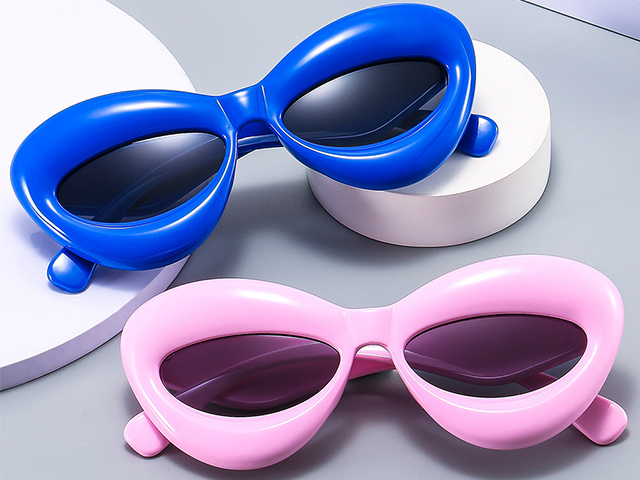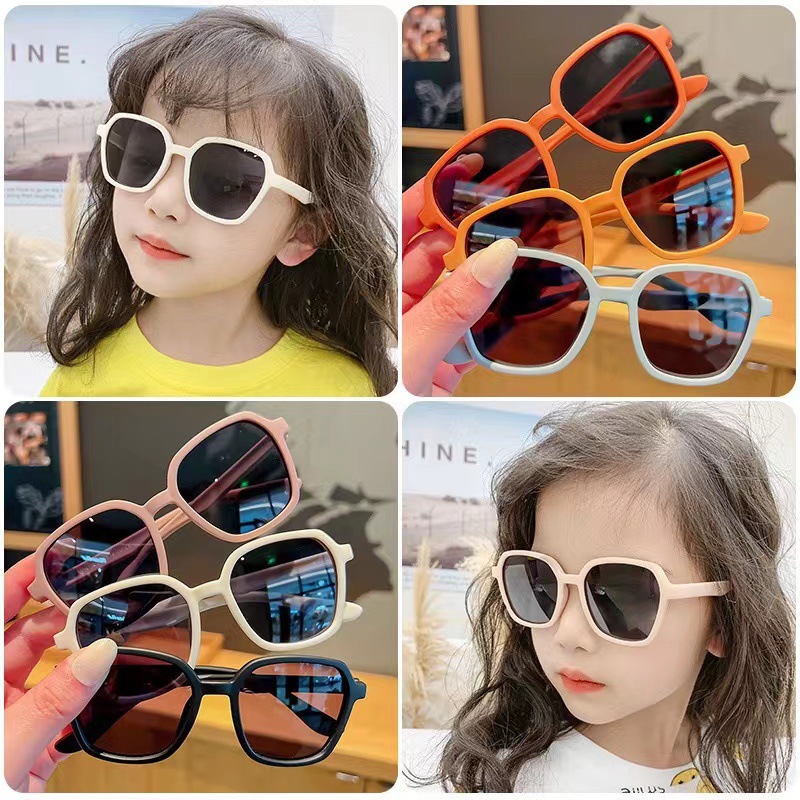What aspects should children's sunglasses pay attention to?
1. Insufficient UV blocking prevents eye protection.
2. The color is too dark, and the normal light transmittance is not enough, resulting in limited vision development and eye fatigue
3. Poor design of lens style, weight, and shape
4. The strength and impact resistance of the lens are insufficient, which can easily break and stab children
5. The flexibility of the frame is not enough, and the elastic ring head style is not used, making it uncomfortable to wear and easy to slip off
The American Academy of Ophthalmology does not set a minimum age limit for the use of Sunglasses. The Academy of Pediatrics recommends that infants over six months of age wear compliant Sunglasses to protect their eyes. Therefore, the correct hair drying mode for young children is sunscreen cap+sunglasses for children:
1. Lens blocks 99~100% of ultraviolet radiation (UVA and UVB)
2. Choose sunglasses with high light transmittance
3. Try to choose polarized lenses as much as possible
Ordinary sunglasses protect the eyes from UV damage; Polarized lenses, due to their polarizing properties, can completely block glare caused by various factors such as scattering, refraction, and reflection, without affecting the transmission of visible light, truly achieving the function of protecting the eyes. Polarized sunglasses not only have basic UV protection functions, but also have anti glare, road reflection light, and water scale light. For children, it can effectively filter out stray light and glare, avoid strong light from damaging their eyes, effectively protect their eyes, and reduce fatigue. Polarized lenses help reduce glare.
4. Choose sunglasses with safe materials
The lenses of sunglasses should have a certain degree of strength to prevent accidental damage to the eyes caused by the shattering of the impacted lenses. One of the testing items for sunglasses is their impact resistance. For children's sunglasses, due to their active nature and poor self-control, the likelihood of unexpected situations is higher. Therefore, children's sunglasses should have impact resistance and reduce safety hazards.
5. In terms of lens color selection, children's sunglasses should not be too dark in color, especially candy color should not be chosen
You can choose between brown or gray. Grey lenses provide a more natural visual quality, while brown lenses can help filter out short wavelength blue light that is detrimental to eye health
6. The frame is soft, comfortable to wear, has a certain elasticity, and is not easy to slip off
7. Lens materials, preferably the following two types: toy sunglasses, plastic lenses, and glass lenses
Polycarbonate material: Polycarbonate lenses themselves can block 100% ultraviolet radiation, with excellent impact resistance and transparency, second only to polyurethane. Cheap, lightweight, non friction resistant, therefore requires film application
Polyurethane material: Excellent impact resistance and optical transparency. Good elasticity, light weight, but relatively expensive


